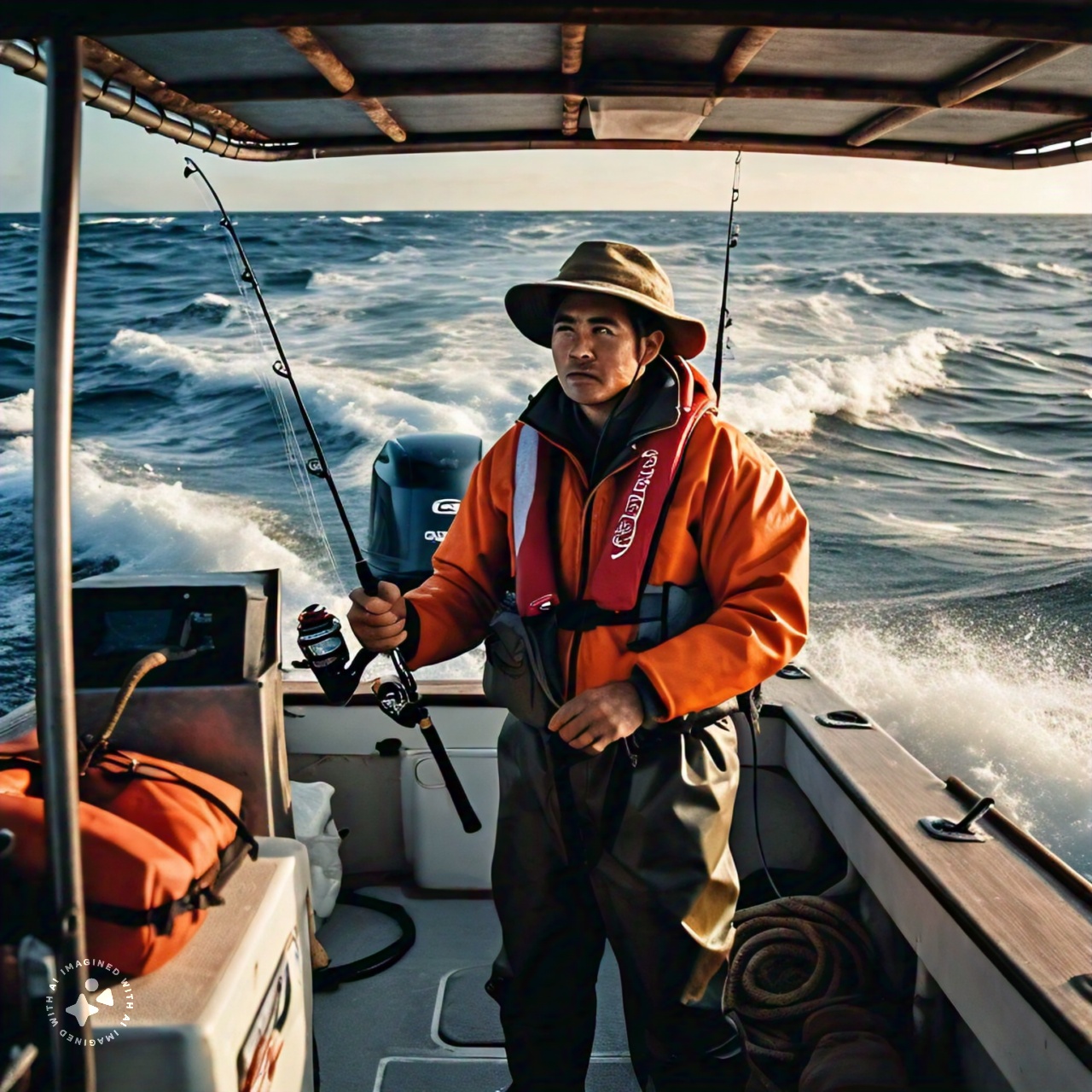Post Preview
Key Takeaways:
- Effective organization and readiness are essential for a prosperous deep-sea fishing excursion.
- Understanding the equipment and local regulations is necessary.
- Safety should never be neglected.
Table of Contents:
- Planning and Preparation
- Choosing the Right Gear
- Understanding Local Regulations
- Respecting Marine Life
- Safety First
- Enjoying the Experience
Planning and Preparation
One of the most critical aspects of any successful deep-sea fishing adventure is thorough planning and preparation. Before you set out, research the best fishing spots in your area. Many people opt for Gulf Shores fishing charters because they offer spectacular experiences with expert guidance. Additionally, consider the type of fish you aim to catch and plan your trip around their seasons. Some marine weather services provide:
- Accurate forecasts and sea conditions.
- Enabling you to choose optimal times for fishing.
- Thus ensuring you are not caught off-guard by unfavorable weather conditions.
Timing is crucial in determining which fish you can catch and how successful your trip will be. It’s beneficial to consult with fellow anglers and experts who can provide firsthand tips and recommendations. Joining online forums or local fishing clubs can be very useful for this purpose. Conversations with experienced fishermen can reveal hidden knowledge, such as the best bait for specific fish, effective fishing techniques, or even secret fishing spots. Your gear, including tackle, bait, and other essentials, should be prepped and checked for any wear and tear that could disrupt the trip. Double-checking your equipment ensures a smoother and more enjoyable experience, preventing the frustration of broken gear or forgotten items once you’re out at sea.
Choosing the Right Gear
Having the right equipment is vital. It includes fishing rods, reels, appropriate bait, hooks, and tackle. As seasoned anglers often suggest, high-quality gear can significantly impact your success rate. For instance, a sturdy fishing line capable of withstanding the pressure from more extensive and aggressive fish is indispensable. Also, choose the right hook and bait suited for your target species. Each species may require a distinct approach, so it’s wise to be prepared. Different fish have varied preferences and behaviors, so understanding these nuances can significantly enhance your fishing experience.
Remember other essential gear, including a cooler for your catch, a good knife, and pliers. Marine safety equipment like life jackets, flares, and a VHF radio should always be on board. These items seem secondary but can make a huge difference, especially in emergencies. Organizing your gear in advance prepares you for various scenarios and adds to the overall efficiency of your fishing trip. Consider labeling your tackle boxes and setting up a checklist to ensure everything is noticed. Minor details in preparation can lead to a more organized and stress-free adventure.
Understanding Local Regulations
Every region has specific fishing regulations, and it’s imperative to be well-informed about them. Ensure you understand your area’s fishing rules to prevent getting involved in legal problems. Regulations might include catch limits, restricted areas, and licensing requirements. Failing to address these issues could result in significant penalties and harmful effects on the marine environment. Following these guidelines is essential to protect your interests and the environment. Regulations are put in place not only to preserve fish populations but also to ensure the sustainability of marine life for future generations.
Licensing is often required and can be obtained from local authorities or online. Observing the stated guidelines keeps you within the law and ensures that fish populations remain healthy and sustainable for future generations. Staying updated on local regulations can enhance your fishing experience by helping you avoid legal pitfalls and contributing positively to conservation efforts. Taking the time to understand and respect these rules showcases your commitment as a responsible angler, setting a positive example for others.
Respecting Marine Life
Responsible fishing practices are crucial for conserving marine ecosystems. When practicing catch and release, ensure that fish are handled carefully to minimize stress and injury. Use barbless hooks and avoid keeping fish out of water for too long. Correct handling techniques can significantly improve the chances of survival for released fish, ultimately contributing to the sustainability of fish populations. Avoid fishing during breeding seasons to protect vulnerable species, allowing them to reproduce without disturbance. Knowing seasonal patterns and breeding habits can guide you to fish more ethically and sustainably.
Additionally, waste or old tackles should never be disposed of in the ocean. Fishing lines and hooks can be hazardous to marine life and their habitat. By adopting sustainable fishing practices, you preserve marine life, ensuring future generations can enjoy this activity. Educating fellow anglers about the importance of respecting marine life helps promote a community of responsible fishermen. Sharing information about sustainable practices can foster a collective effort toward marine conservation, significantly impacting over time.
Safety First
Deep-sea fishing is exhilarating but dangerous if proper safety measures are not taken. Always prioritize safety by wearing life jackets, carrying an adequately stocked emergency kit, and informing someone about your trip details. Updated communication devices are critical for emergencies. It includes radios, mobile phones, and other navigation tools necessary for an unforeseen crisis. It’s vital to keep these devices charged and functional, with backups if possible, to ensure you’re prepared for unexpected challenges.
Understanding basic maritime safety procedures is fundamental. Inspect the boat’s condition and ensure all safety equipment is current. Weather conditions should be monitored closely before and during the trip to avoid unexpected storms or rough seas. Consistently updating yourself with the latest weather forecasts can provide you with the knowledge to make informed decisions. Remember, canceling a trip is always better than risking safety. Even seasoned fishermen who know their vessels inside out must be cautious, as the ocean can be unpredictable. Sharing your location and expected return time with someone on shore can add a layer of safety, ensuring timely assistance.
Enjoying the Experience
Last but not least, embrace the experience. Fishing is about the catch and the joy of being on the water. Many anglers find deep-sea fishing an excellent way to unplug from daily stressors and connect with nature. The open ocean’s tranquility and the catch’s thrill make for an unforgettable experience. The moments spent waiting for a bite are as valuable as the catch, offering time to reflect and relax. The sights, sounds, and fresh sea air contribute to an unparalleled sense of peace and satisfaction.
Making memories with loved ones during adventures can enhance the overall experience. Capture photos of your expeditions, the sunsets, and the occasional sight of marine life. These factors enhance the overall pleasure and satisfaction of the journey. So, take it all in and create lasting memories. Relax, enjoy the sea breeze, and cherish every moment spent on the water; these memories will linger long, even after the journey ends. Reflecting on these cherished memories can bring joy and inspire future trips. Each expedition offers unique stories and lessons, enriching your life on and off the water.
Keep an eye for more news & updates on EssentialTribune.Com!








